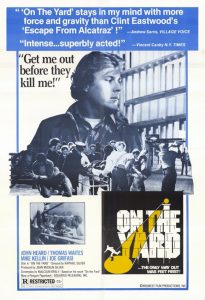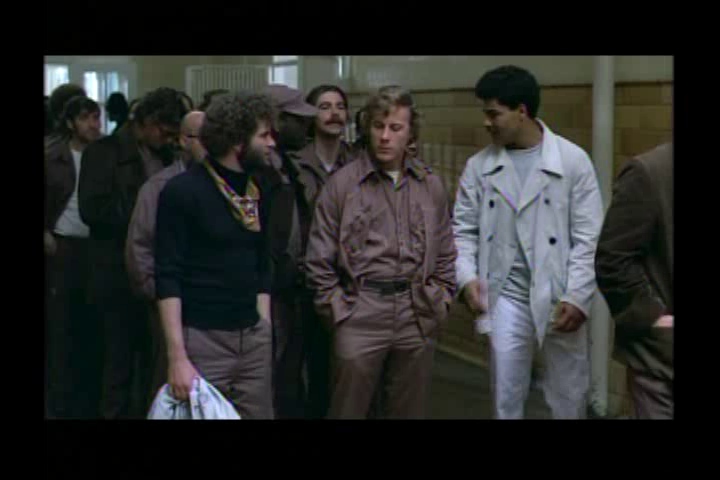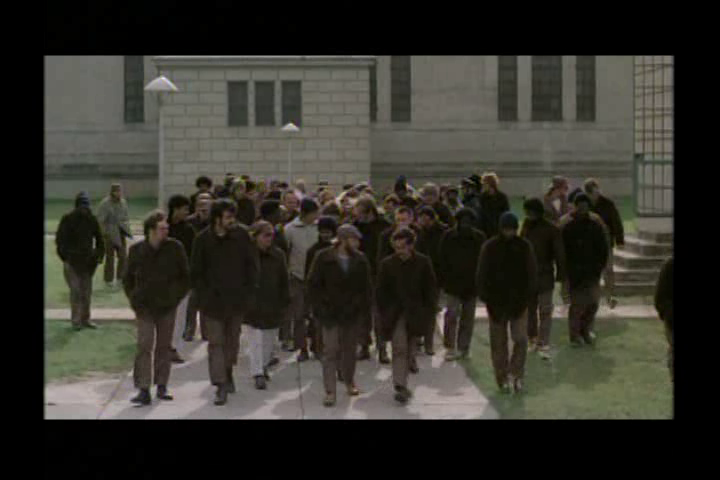“You run the yard — everybody knows that.”
|

Synopsis:
A convicted wife-murderer (John Heard) buys cigarettes on credit from a top-dog inmate (Thomas G. Waites), but finds his life at risk when he can’t pay Waites back on time, and refuses to collude with a captain (Lane Smith) determined to nail Waites. Meanwhile, Waites’ right-hand man (Mike Kellin) hopes the parole board will grant him early release, and an optimistic inmate (Joe Grifasi) attempts to sew an escape-worthy hot air balloon.
|
|
Genres, Themes, Actors, and Directors:
- Bullies
- John Heard Films
- Prisoners
Review:
Based on a novel by an ex-con (Malcolm Braly), and co-produced and directed by husband-wife team Raphael D. Silver and Joan Micklin Silver, this downbeat but realistic glimpse of life in a men’s prison (filmed on-site at the State Correctional Institution at Rockview, Pennsylvania) offers a refreshingly authentic portrayal of survival “on the inside”, where existence is predicated on careful navigation of power dynamics among prisoners and correctional staff. While Heard’s stubbornness is foolishly naive, he at least maintains his morals at all costs, and his decisions shift the storyline in unexpected directions.

The sub-plot involving Grifasi’s hoped-for escape a la The Wizard of Oz (1939) strains credibility, but Kellin is a likable supporting character, and Waites gives a quietly convincing lead performance.

Redeeming Qualities and Moments:
- Mike Kellin as Red

- An authentic glimpse at power dynamics and survival in prison

Must See?
No, though it’s strongly recommended. Listed as a Sleeper and a Personal Recommendation in the back of Peary’s book.
Links:
|





One thought on “On the Yard (1978)”
First and last viewing.
Standard prison flick that holds nothing new and no particular insight into being behind bars. We’ve heard all of this dialogue a gazillion times before; none of the characters stand out as unique or even all that interesting.
Competently produced – but it gradually becomes tiresome as we realize that the entire ‘plot’ is about a guy who owes another guy some cartons of cigarettes. (That’s IT?!!!)
The sudden shift (near the conclusion) to the improbable escape – which can very easily be thwarted, yet isn’t – is a sorry attempt to pep up a film that’s been sitting in idle throughout.